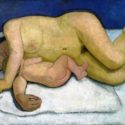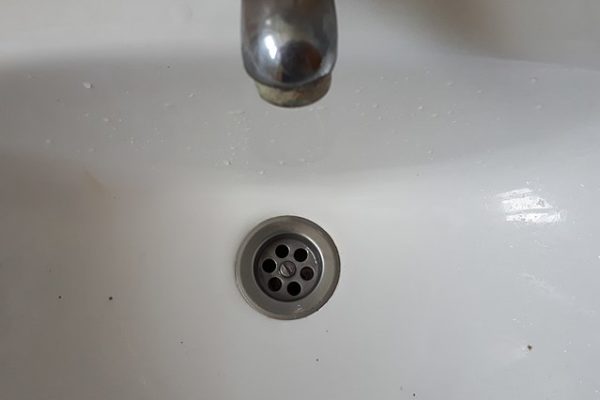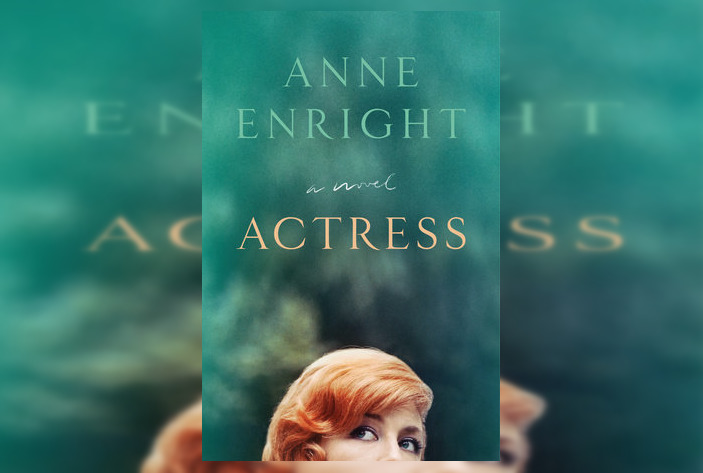The Door
“How long has it been since she left do you think?”
She doesn’t answer me. Pip, which is short for Penelope, is only four and doesn’t know anything about hours and minutes anyway. So I sit with my legs out against the front door where I will be able to hear Mom in the courtyard of our apartment building right away, and think of everything that happened since she left to measure the minutes.
I had sat and thought about what I was going to wear to school tomorrow, if it was warm my miniskirt with the fluorescent buttons; if not, jeans and my Dee-lite T-shirt. I was also thinking of Chantilly’s new glasses, which were big and square and made her look like a boy. I had grabbed the brown carpet with my hands and dug my fingers into it and tried to get to the bottom most dirtiest spot and then pulled my hands up and smelled them to see if anything gross was under there. I had done this about four or five times at least. I had gotten up to pee and looked at my privates a lot and pushed the skin all around. I had gone to the bathtub and picked up the bottle of Herbal Essences, green shampoo with the beautiful river maiden on the front, whose long blond hair was all mixed with river grass and petals, and I had smelled it deeply with my eyes closed thinking of all the river mermaids of the world, dead like Ophelia in the painting, whose smell had somehow managed to get into this bottle of my favorite shampoo. I had gone to the fridge and looked at all the things mom could have eaten but didn’t: tortillas for quesadillas, white bread and American cheese for grilled cheese, sour cream and Russian bologna and Ginger Ale and cherries and baby cheeses in the red wax.
She doesn’t really like food because it makes her feel full, but every once in a while she wants something big like a big deli sandwich.
I don’t know why she can’t take us with her. She takes us everywhere, even to her AA meetings, even to see all her friends, like Tracy and Al and Daniel, who has a pool and says I look like a pre-Raphaelite painting.
I get up and run into the bedroom to tell Pip: “I think she’s been gone at least an hour, Pip! Maybe two! I’m going to call the deli don’t worry!” But she’s asleep in the bed we share, her dirty little feet tucked under her butt and her thumb in her mouth. “Oh, God!” I say out loud. “Please, God! Let her be okay.”
I go into the living room and flop onto the couch on my back. I pick up the cordless phone and call 411. I know every time you call it costs 25 cents because my Dad got mad at me last month about all my 411 calls on the phone bill. But mom doesn’t care about that kind of stuff.
“Hello, Los Angeles. Can I please have the number for Greenblatt’s Deli?”
“Yes please hold for the number.” Then the lady robot’s voice: “The number is 213-455-3264. Again, the number is 213-455-3264. Thank you for using AT&T—”
“213-455-3264, 213-455-3264.” I hurry up and dial before I forget.
“Hello, Greenblatt’s Deli how may I help you?”
“Hello. I am looking for my mother. She is a short lady with long blond hair, red lips, motorcycle boots and a T-shirt with a Russian sailor on it. Do you see her there please?”
“Ummm. Can you hold young lady?”
“Yes.”
The hold music comes on and I feel like I am going to throw up. If they don’t find her there I am going to have to go outside and find her in the block between our house and the deli.
The hold music stops. “Honey?”
“Mom! Why aren’t you home yet it’s been so long!”
“Darling it’s been ten minutes.”
“Well what are you getting that’s taking you so long?”
“I’m getting a pastrami sandwich.”
“Did you order it already or did you not order it yet?”
“I ordered it already! I will see you in a minute, okay?”
“How many minutes?” I run into the kitchen. “Wait mom, if the clock on the stove says 9:13 now what will it say when you get home?”
“Darling, I don’t know exactly! Very soon. I’m hanging up now okay?”
I hang up without saying bye. I pick up Simon, our Siamese cat, and drop him onto the bed with Pip and close the bedroom door behind me so he can’t get out. I leave the front door open a crack and run down to the bottom of the stairs and sit on the bottom one. This way I will be able to see her as soon as she comes through the glass doors of our building.
The Trip
A friend of mine had thought it would be a really good idea to take a trip upstate to her billionaire girlfriend’s house.
“Show your mom your life,” my friend said. “You come up here all the time.”
True. But I wouldn’t describe it as “my life” exactly. More like, “My friend’s life that might not even be her life.”
Still, my mother’s first trip to visit me in New York, from my hometown of Los Angeles, begins with a trip upstate to the big modern house with bedrooms twice the size of my Brooklyn studio. On the way up, the three of us take a walk in Minnewaska State Park. We sat on a big white stone on the edge of the steep cliff that overlooked green furry hills and striped rocks propped up like pillows. My mom hugged me and held me.
“Your body looks great,” she said. “Have you lost weight? You look wonderful.” I didn’t say anything.
In the forest she got nostalgic. She described me to my friend. “Irina was going to the toilet by herself at nine months. We put her on the bed, well, her father had a technique. Well, first you have to know that the first time we took Irina to the beach she started wailing as soon as she stepped in the sand. She couldn’t stand the feeling–sand in her toes. So when we were living in Battersea, in London, her father had the idea of letting her poop in the bed and having to sit in it. And she hated it so much she never pooped on herself again.”
“So you basically trained me like I was a dog.”
“Oh, that was your father’s shit. Don’t go blaming me for that.”
I feel my friend hugging me without hugging me
Things get better back in New York. My mother and I go to Lincoln Center to see the New York Philharmonic play Mahler’s Resurrection. A girl in the bathroom line with short hair says they always start late.
“Don’t worry,” she says. “We’ll get back in time.”
Later my mom says, “You should come see concerts here, Irina. You love classical music. Why don’t you come? I bet you none of your friends have the patience for it. I bet you you could meet people here. Meet a nice girl. Like that girl in line.”
When I notice the violins are out of sync, she tells me I have a natural intelligence for music. “Like Grandma,” she says. Who had her playing classical violin by the time she was five. This is the first time my mother has said anything about me and music. My sister had the ear, I had the brain. We were not allowed to have both.
We spend her last day in town walking around in my neighborhood. We go to brunch. She cries when I tell her about the creative writing workshop with the homeless kids. So do I. I tell her about Mecca, who had the baby and who was the best and most enthusiastic of everybody and then didn’t show up to the reading. And about Quincy, the trans kid who fought me every time I said his stories were good, saying “That’s nothing. I’m a writer, I know what’s good. That’s not good, you don’t know me.” We sit on the steps of the Met and cry about the Jewish couple I read about in Pema Chodron’s book.
And then we’re sitting together in my house. She’s on my bed looking at a magazine. Saying the painting on my wall looked like a television. Saying I had “taste.” “Your apartment has class. It’s a beautiful apartment. So compact. It all fits together like a puzzle. I don’t know where you got that. Your sister doesn’t have it. I don’t have it.” And she continues. “You live in a nice neighborhood. It’s a black neighborhood, isn’t it?” she asks. “What’s that like?”
No one but her asks questions like that.
“I’m not American, honey,” she says. “I’ll never talk the way you think I should.”
And then: goodbye. The walk to the train down Eastern Parkway. Trying to show her a few more things. The building paneled like a Swiss Chalet. The grand Brooklyn Museum at night. The fountain that shoots water up into the sky like cannons.
“It’s like an orchestra,” I say. “Like Fantasia.” But it stops as soon as we reach it.
When we get down to the train, I walk her into the station. We hug for a long time. We are both crying again. That makes three times we cried together on her trip. Two strangers who know each other very well. Her blonde hair disappears down the stairs. I wait for her to look back but she doesn’t.
—
Svetlana Kitto is a writer. Her fiction and nonfiction have been featured in Salon, VICE, Art21, Plenitude Magazine, the New York Observer, and the book Occupy (Verso, 2012). She has contributed oral histories to projects and exhibitions at the Brooklyn Historical Society, the Mashantucket Pequot Museum, the Museum of Arts and Design, Know More Games gallery and the New York Public Library for Performing Arts. This past winter, she was Danspace Project’s Writer-in-Residence for Platform 2016: A Body in Places. She co-curates the reading and performance series Adult Contemporary in NYC.




